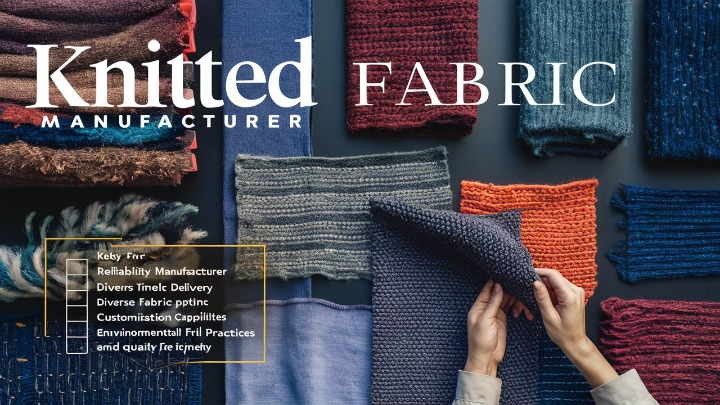
Quality of Textile Fabrics
The foremost consideration is the quality of the textile fabrics produced by the manufacturer. High-quality fabrics are characterized by their durability, softness, and consistency. Evaluate the manufacturer’s samples to assess the texture, colorfastness, and strength of the fabrics. Quality control processes and certifications, such as OEKO-TEX® or GOTS (Global Organic Textile Standard), can also indicate a manufacturer’s commitment to producing top-notch textile products.
Range of Textile Products
A reputable knitted fabric manufacturer should offer a diverse range of textile products. This includes various types of knits like jersey, rib, interlock, and more. The variety not only showcases the manufacturer’s capability but also allows you to select the best fabric suited for your specific needs, whether it’s for casual wear, sportswear, or specialized applications.
Technological Capabilities
Modern knitting machines and advanced technology are essential for producing high-quality fabrics efficiently. A good manufacturer should invest in state-of-the-art machinery and employ innovative techniques. This includes computerized knitting machines that ensure precision and consistency, as well as sustainable practices like waterless dyeing or the use of recycled materials.
Experience and Expertise
Experience in the textile industry is invaluable. Manufacturers with a long history are likely to have refined their processes and quality control measures over time. Additionally, expertise in different knitting techniques and fabric compositions ensures that the manufacturer can meet your specific requirements. Look for manufacturers who have a track record of working with well-known brands or who have garnered industry awards and recognitions.
Customization and Flexibility
Every project has unique requirements. A good knitted fabric manufacturer should offer customization options, such as bespoke colors, patterns, and finishes. Flexibility in order quantities, whether small batches for startups or large volumes for established brands, is also crucial. This flexibility indicates the manufacturer’s willingness to cater to various business sizes and needs.
Sustainability Practices
Sustainability is becoming increasingly important in the textile industry. Manufacturers who prioritize eco-friendly practices, such as using organic or recycled fibers, reducing waste, and minimizing their carbon footprint, should be preferred. Certifications like GOTS, Bluesign®, or Fair Trade can help identify manufacturers committed to sustainable practices. Sustainability not only benefits the environment but can also enhance your brand’s reputation among eco-conscious consumers.
Reliable Lead Times and Delivery
Timely delivery is essential for maintaining your production schedule. Assess the manufacturer’s capacity to meet deadlines and their reliability in adhering to agreed-upon lead times. Delays in fabric delivery can disrupt your supply chain and lead to costly delays in bringing your textile products to market.
Competitive Pricing
While quality should never be compromised, competitive pricing is also a key consideration. Evaluate the manufacturer’s pricing structure and ensure it aligns with your budget. Transparent pricing with no hidden costs is essential for maintaining a clear financial picture of your production costs. However, be wary of prices that seem too good to be true, as they may indicate compromised quality or unethical labor practices.
Communication and Customer Service
Effective communication and responsive customer service are vital in maintaining a smooth working relationship. Choose a manufacturer who is open to discussions, readily available to answer your queries, and proactive in providing updates about your order. Good customer service can make the entire production process more efficient and less stressful.
Reputation and Reviews
Finally, consider the reputation of the manufacturer. Research online reviews, testimonials, and case studies to gauge the experiences of other clients. Positive feedback and long-term relationships with clients can be strong indicators of a reliable and competent manufacturer. Don’t hesitate to ask for references and directly contact other businesses who have worked with the manufacturer.
Selecting the right knitted fabric manufacturer involves a comprehensive evaluation of various factors, from the quality of textile fabrics and technological capabilities to sustainability practices and customer service. By carefully assessing these qualities, you can ensure that your textile products are produced to the highest standards, meeting both your expectations and those of your customers. Investing time in finding the right manufacturer will ultimately contribute to the success and reputation of your brand in the competitive textile market.